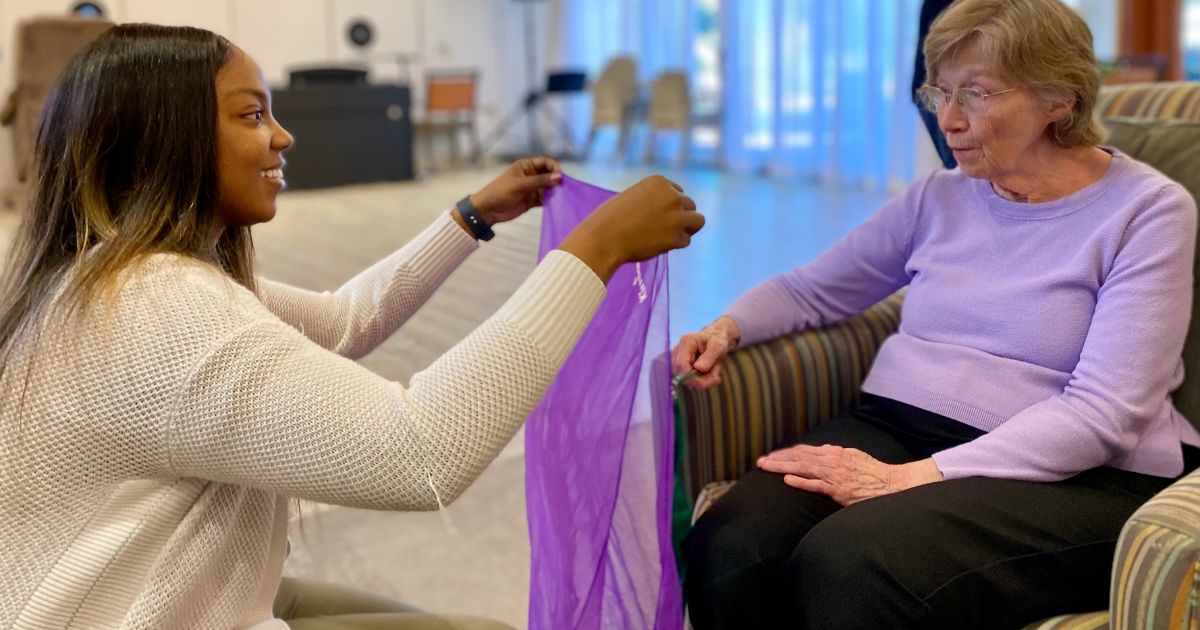Caring for a loved one with dementia at home requires patience and resilience. This type of caregiving role can be less challenging with a helpful network of resources and knowledge, especially as the disease progresses.
As needs change over time, families may have to adapt their approach and strategies to meet the interests and abilities of their loved one. Consider the following tips when taking on this important role.
7 Practical Tips for Dementia Care at Home
1. Learn about the different stages of dementia
Learn all you can about the different stages of dementia and common behaviors associated with cognitive decline. Resources such as the Alzheimer’s Association or your local Area Agency on Aging can provide helpful, up-to-date information about research and tips for families. When you have a greater understanding of what to expect, you’ll feel more comfortable and confident with your loved one’s care.
2. Lean on dementia care professionals and home care
Consult with a neurologist or geriatric specialist for an accurate dementia diagnosis and treatment plan. Make sure to ask questions and share any concerns you have about your loved one’s diagnosis or care needs.
Consider scheduling a home care evaluation by trained professionals, like those with Abe’s Garden at Home, to assess safety in the home and to evaluate whether additional in-home services may be beneficial.
3. Ensure safety throughout the home
Install locks on cabinets that contain chemicals or other dangerous objects and supplies. Add grab bars in the bathrooms and railings to all areas of the home with stairs. Ensure the home is well-lit and all pathways are free of clutter to prevent falls.
4. Create comfortable and familiar surroundings
To help reduce confusion and anxiety, keep the home environment consistent. For example, make sure furniture, decor, and other objects throughout the home stay in the same place. Try labeling doors and drawers with pictures or simple words and phrases to help your loved one easily identify what’s inside.
5. Develop a routine
Create a daily care plan that includes consistent meals, activities, and sleep schedules. Incorporate activities that your loved one enjoys and can actively participate in, like listening to music, doing simple art projects, and gardening or walking outdoors.
Abe’s Garden at Home, a Nashville-based home care provider, uses Hearthstone Institute’s I’m Still Here® approach to combine meaningful activities with specialized communication techniques to provide engagement, choice, and true purpose regardless of the level of cognitive challenge.
6. Practice self-care
Remember to carve out time each day to take care of your own physical and mental health. Caregiving can take a toll on anyone, so it’s best to be aware of when you’re feeling stressed or overly tired. Connect with a local support group for families that have loved ones with dementia. You can also consider seeing a therapist or counselor for emotional support.
7. Plan for future care and preferences
Dementia is progressive, which means cognitive decline will worsen over time and care needs will increase. Many families eventually transition a loved one living with dementia at home to a memory care community that offers specialized care in a safe, secure environment.
Research options near you and visit communities to have a plan in place when more care is needed than you can provide. Elder attorneys are also helpful with financial plans and legal documents, including a living will and power of attorney.
Are You Ready to Explore In-Home Care?
Download our free guide, “Compassionate Support from the Comfort of Home: A Guide to Abe’s Garden at Home,” to help you understand the options available to you and your loved one. You’ll learn about our approach, the benefits of in-home care, our service offerings, and how to get started with an in-home assessment.

